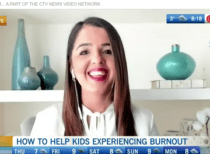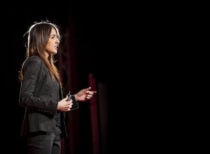Keynote Speeches
Research has consistently shown that when employees feel that they belong, they will perform better and experience higher levels of commitment, engagement, and well-being.
An absence of belonging increases risk of isolation, underperformance, and burnout.
This session will examine what it means to belong at work, the harmful effects of exclusion, and the challenges that leaders face in creating a sense of belonging.
Practical and evidence-based tools and strategies that support building, fostering, and nurturing a culture of belonging will be presented.
Resilience is a powerful skill that can be developed.
It is the ability to bounce back from obstacles and setbacks to achieve higher levels of performance. It requires developing positive adaptation processes to help overcome the challenges that we face, and the use of positive experiences to build confidence in our strengths and abilities. It also involves interventions that support and develop self-trust, objective reasoning, perseverance, and possibility thinking.
Research shows that these capabilities can be learned, and this session focuses on how we can develop strategies to build our resilience by examining the capabilities of psychological capital, improve the experiences that we have to navigate the change we experience, and reach our full potential.
Trust is in a state of crisis, and earning trust has never been more imperative for leaders than it is today. Trust helps to solve problems of risk, and is needed for collaboration and innovation. Embracing risk during this time can be challenging, especially when there is greater exposure to uncertainty with potential loss that truly matters. This session will examine the neuroscience of trust, misperceptions, and navigating distrust. The connections between transparency, vulnerability, and trust will be explored. Tools and strategies to lead and manage for trust will be presented.
Optional Add-On: Simulation – Creating a Culture of Trust
A recent survey, led by Dr. Rumeet Billan, in partnership with Thomson Reuters and Women of Influence, found an overwhelming number of women in Canada have experienced Tall Poppy Syndrome in the workplace.
A term popularized in Australia, Tall Poppy Syndrome occurs when people are attacked, resented, disliked, criticized or cut down because of their achievements or success. This has a direct impact on everything from engagement to productivity to retention. It also has a direct impact on the emotional and psychological well-being of women. An immediate change is needed to support women in the workplace, to encourage their accomplishments and shift the culture of toxic workplaces.
This session will examine the results of The Tallest Poppy, and discuss how psychological health and workplace performance has been affected by this silent systemic syndrome.
Psychological safety is the belief that one can speak up and share their thoughts, ideas, and feelings without risk of negative consequences. High performing teams require psychological safety for optimal creativity, risk-taking, vulnerability, and collaboration. As the boundaries between work and life continue to blur due to the ongoing pandemic, new forms of work are affecting the psychological safety that employees experience, making it both fragile and essential.
This session will examine the 13 factors of psychological health and safety and explore its misconceptions, including unearned autonomy and a shield from accountability.
Strategies and steps for leaders to create, boost, and nurture psychological safety among those that they lead will be presented.
Gender-based Analysis Plus (GBA+) can be used in any sector to guide the systematic consideration of gender and other identity factors throughout the development initiatives, policies and programs. There are differences in how people experience aspects of life from education to employment. GBA+ encourages us to examine how a situation can be experienced differently and is affected by identity factors. One of the key competencies developed in GBA+ training is the capacity to challenge the assumptions we make as individuals, while considering how they may unintentionally create unequal outcomes for others. Incorrect assumptions can lead to unexpected or unintended consequences for a particular group. This session aims to recognize and move beyond our assumptions and find ways to address needs using the analytical process.
Examples of virtual sessions include:
Redefining Resilience with Rumeet Billan & Astronaut Dave Williams








Similar
Speakers